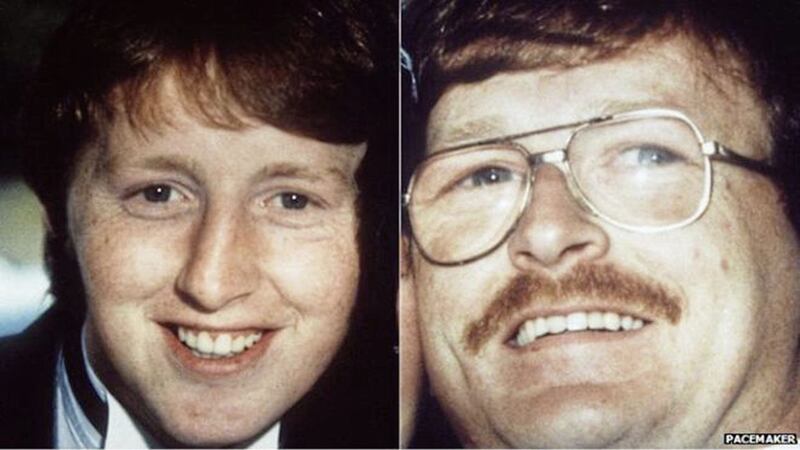High Court action has been launched in relation to a "systemic lack of funding" to the Office of the Police Ombudsman NI to pay for investigations into controversial Troubles killings.
The Department of Finance have confirmed that £5m has been ring-fenced for legacy, however, if a business case for the money is not received, the allocated budget would have to be returned to the Executive.
The information was contained in correspondence sent to Gavin Booth of Phoenix Law, on behalf of the widow of a man shot dead by the SAS.
Brothers Gerard and Martin Harte died along with Brian Mullin when the SAS fired on them near Drumnakilly, Co Tyrone.
The shootings came 10 days after eight soldiers were killed in the IRA Ballygawley bus bombing.
The three IRA men were preparing an attack when they were ambushed by the SAS. A total of 236 shots were fired during the incident, sparking claims that they were victims of a 'shoot-to-kill' policy.
Gerard Harte was married with one son at the time of his death.
His widow Roísin Harte lodged legal action against the Department of Justice and the Police Ombudsman's office in relation to the inability of the watchdog to carry out a proper investigation due to budget constraints.
Mrs Harte was told in September 2018 that a complaint about her husband's death had been accepted by the ombudsman and would proceed to investigation.
However, she was also told that due to a lack of resource her complaint had not been prioritised, and there was no time frame as to when she might expect the investigation to commence.
Correspondence from the Department of Finance to Mrs Harte's legal team, seen by the Irish News, stated that as part of the 2020-21 budget, "DoJ identified a funding requirement for Justice System legacy costs".
"The Executive subsequently agreed a ring-fenced allocation of £5m to DoJ for legacy spending. DoJ is free within its total budget allocation to spend more than £5m on legacy matters. However, if the £5m funding is not required for legacy spending then DoJ must surrender it to the Executive (via DoF) for redistribution".
" To date, no bids for legacy issues have been received in the 2020-21 in-year monitoring process".
Mr Booth said his client "has waited patiently for this investigation", which due to a systemic lack of funding has been delayed indefinitely.
In the absence of the DoJ making a business case for the money required, they are asking the High Court to intervene.
A spokesperson for the Department of Justice said: "The business case submitted by the Office of the Police Ombudsman for Northern Ireland to the Department of Justice relates to historical investigations.
"The £5m referred to has been allocated by DoJ in 2020/21 to the criminal justice organisations engaged in the legacy inquest project, including OPONI.
"This funding was in response to a separate business case covering legacy inquests and is fully committed.
"The Department is still engaging with OPONI on the business case in respect of wider historical investigations".








